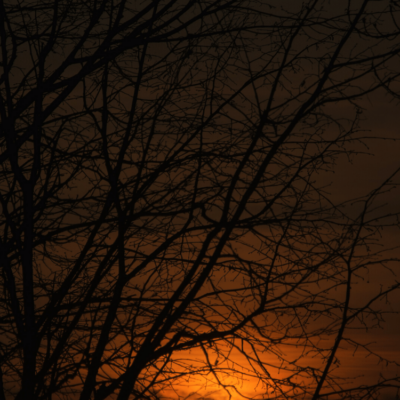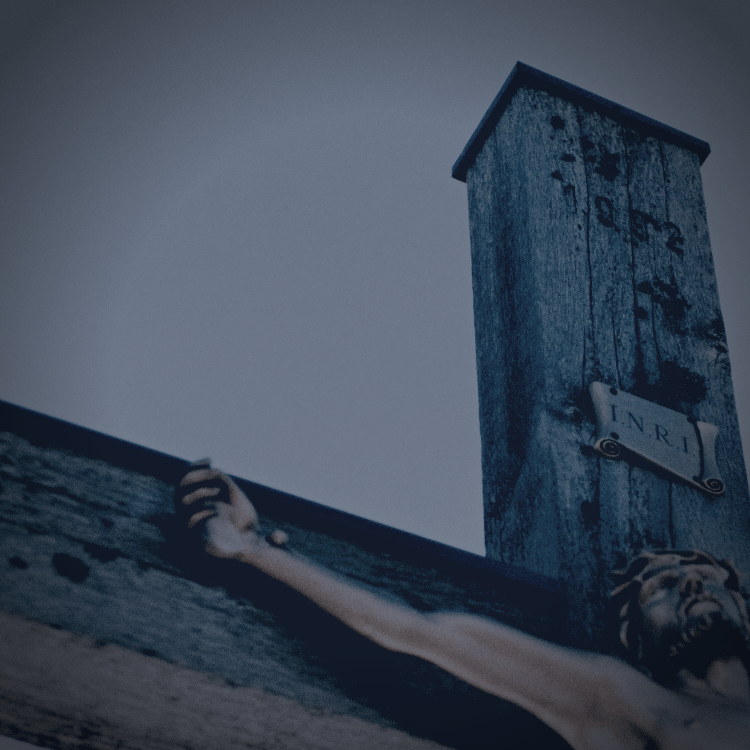An uncertain journey
We are now three weeks into lockdown. The novelty – if there ever was any – has worn off; the adrenaline that fuels response to crisis is running low; and we are beginning to experience the reality that this will be a long haul. More than that, it is a long haul with an uncertain finish date and an unknown outcome.
And we find ourselves in Holy Week.
We are prevented from entering the sacred spaces of our church buildings, but we can still enter this holy time and step into Jesus’ passion.
We are not in control
‘Passion’ is an interesting word. We rightly associate it with active emotional outpouring, but this is because emotion was originally understood as something that seizes you so that you are no longer master (or mistress) of yourself; you in fact become passive. This is what happens to Jesus. As soon as he is handed over in Gethsemane, he ceases to be the master of his fate and cedes control to others.
Judas is the key figure in the handing over of Jesus and, in John’s gospel, his act of betrayal is marked by the words ‘and it was night’.
This is a new time zone; a period of passive waiting and of deep darkness.

Entering into darkness
Darkness has many connotations, usually negative. ‘There’s no light at the end of the tunnel’, we say when things seem hopeless, and the New Testament talks about the place of social exclusion and abandonment as the ‘outer darkness’.
The outer darkness is, of course, precisely where Jesus is located. He is convicted as both a blasphemer and insurrectionist, dying a squalid death in a disused quarry; outside the camp and beyond the pale.
This was the worst of deaths, not only because of the slow strangulation it involved, but because it signified social death. Jesus was oppressed, afflicted, despised, rejected, held of no account other than as one stricken by God. The ultimate loser – certainly so to the onlookers and perhaps at the last to himself. Mark’s gospel tells us:
When it was noon, darkness came over the whole land until three in the afternoon.

'Why have you forsaken me?'
What thoughts might have gone through Jesus’ mind in those three hours? Did he wonder if this had been one huge mistake? That God, after all, was not on his side? That he was instead utterly alone in the dark?
In the words of that well-known hymn, ‘We do not know, we cannot tell, what pain he had to bear…’ But we do know that like many before and after him, like us today, Jesus turned to the Psalms. He cried out to his God in the opening words of Psalm 22.
At three o’clock, Jesus cried out with a loud voice, ‘Eloi, Eloi, lema sabachthani?’ which means, ‘My God, my God, why have you forsaken me?’
Was this a cry of anguish, fear or indignation? Or was it simply the grasping at the familiar in a place of utter disorientation? We are not told.
‘Eloi, Eloi, lema sabachthani?’
Journeying in the dark
What sense are we to make of this deep darkness? For the first followers of Jesus it seems that no sense was to be had. They were struck down with terror and grief and, perhaps above all, disappointment. They too became passive, if not paralysed. The Easter story that we celebrate over one weekend was in reality played out over a longer timescale, punctuated by periods of confusion and uncertainty. Much is carried by those words of the two disciples on the road to Emmaus: ‘But we had hoped that he was the one to redeem Israel.’ The story, at first so hopeful, had gone horribly wrong for them.
Human beings are natural meaning-makers and storytellers. When bad things happen we can feel compelled to weave them into a narrative of hope or redemption whose bottom line is ‘it turned out for the best in the end’. It has often been easy for us to do this with the story of Jesus, to be tempted by what we know happened on Easter Day to say to ourselves ‘And they all lived happily ever after.’ This certainly isn’t going to work for us in our current situation. There is no silver-bullet vaccine; people will continue to get sick; many will lose loved ones.
We can’t make things better by concocting unforeseen benefits or a happy ending. We can’t rush through the darkness towards a light at the end of the tunnel, even if we trust that one day we will get there. And we can’t by-pass the valley of the shadow of death – notice that Psalm 23 says ‘though’ not ‘if’ I walk through it. We simply have to be there and endure it; and if – like Jesus – we have a reservoir of prayer and scripture to draw on, we will find that we are better equipped to inhabit the darkness well. But it is still darkness.
If we hurry to make meaning, we will end up with something brittle that easily cracks under the weight of reality; we need to acknowledge that there are aspects of living and dying that are truly appalling for some of us. Simply naming this honestly and giving others permission to do the same can be deeply helpful and liberating as well as honouring for those involved.
We can’t rush through the darkness towards a light at the end of the tunnel.
A different sort of meaning
We are in the early stages of our own passions – personal and community. Our natural activism, our worthy desires to make things better in whatever way we can, to ‘keep calm and carry on’, may have to be set aside. We will need to learn to be passive, to undergo, above all to wait well. As we do this we may find not that things become easier, but that some other aspects of darkness start to emerge, and with them a different sort of meaning. The richness and depth of dark vocal tones, of bitter chocolate, of black coffee; experiences that are hard to put into words, paradoxical qualities that may seem like nonsense yet bear the mark of truth. Isaiah called these ‘treasures of darkness’; the Spanish mystic John of the Cross wrote of the dark night of the soul that gives a light brighter than noonday.
And the darkness did not overcome it.
Revd Dr Joanna Collicutt is the Karl Jaspers lecturer in psychology and spirituality at Ripon College, Cuddesdon, and Oxford diocesan advisor for spiritual care for older people. She is also an associate priest in a west Oxfordshire parish and an honorary canon of Christ Church Cathedral, Oxford.
